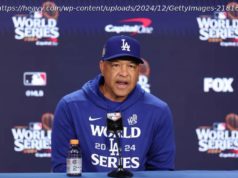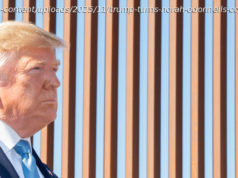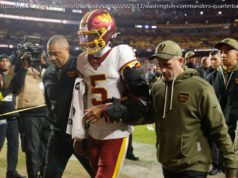An arbitrator determined that the quarterback’s lawyers had unearthed sufficient evidence of collusion by N. F. L. owners to keep the free-agent quarterback off the field.
In a blow to the N. F. L., an arbitrator has ruled that Colin Kaepernick’s collusion case can proceed because he has produced sufficient evidence that the league and its owners colluded to keep him off the field.
The ruling by Stephen B. Burbank, an arbitrator who was appointed by the league and the N. F. L. Players Association, said lawyers for Kaepernick, a free-agent quarterback, had unearthed enough information in the past year for the case to proceed to a full hearing. After months of depositions and document searches, the lawyers will be able to question league officials, owners and others in a trial-like format.
The decision was revealed by Mark Geragos, Kaepernick’s lawyer.
The N. F. L., which had moved for summary judgment to end the case, declined to comment.
A hearing would most likely begin by the end of the year, though it is possible the two sides could settle the case before then. Kaepernick is seeking damages equal to what he would have earned if he were still playing in the league.
The decision, which was made public on Thursday, is likely to inflame an already noxious controversy inside the league over what to do about players who have been protesting during the national anthem. The season begins on Sept. 6.
In August 2016, Kaepernick was the first player to kneel during the anthem, to raise awareness of police brutality and other forms of social injustice. Since then, dozens of other players have joined Kaepernick, creating a schism between fans, sponsors and owners. It has also led to a barrage of attacks by President Trump, who has said the owners should fire any player who does not stand for the anthem.
In May, the league tightened its policy to force players to stand for the anthem, instead of just suggesting they stand, but the N. F. L. decided not to enforce the policy while league executives and the players’ union discussed whether or how to proceed.
Kaepernick filed a grievance against the N. F. L. in October accusing the owners of conspiring to not offer him a new contract because of his decision to protest during the playing of the national anthem.
Since he became a free agent in March 2017, Kaepernick has not been invited to work out for a team, or been offered a new contract. Some team officials have quietly suggested that Kaepernick’s best years are behind him, while others said they did not want to sign him to play as a backup. Kaepernick, who is now 30, played six years with the 49ers and led them to the Super Bowl in his second season.
John Elway, the former Denver Broncos quarterback who is now general manager of the team, muddied the waters further when he told the NFL Network that he did not sign Kaepernick because the player had once been offered a contract and turned it down.
Elway, though, did not say that he offered Kaepernick a contract in 2016, when he was set to receive $12 million from the 49ers, and months before he first protested. Kaepernick said no because he would have had to take a pay cut to join the Broncos. Elway said that he did not sign Kaepernick when he became a free agent the following year even though he might have accepted far less than $12 million to play in Denver.
Elway did not say explicitly that he shunned Kaepernick because he protested during the anthem. But Kaepernick’s lawyers contend that the quarterback was still talented enough to play in the N. F. L., and that he was willing to be a backup. The N. F. L. has shunned Kaepernick because of his political views and his decision to protest during the anthem, his legal team has argued.
During discovery, Kaepernick’s lawyers have requested hundreds of pages of documents from the league office and teams. It has also questioned, in closed-door sessions, owners of the Cowboys, the Patriots and several other teams, as well as league officials including Commissioner Roger Goodell and Troy Vincent, the executive vice president for football operations.
Cases alleging collusion against sports leagues are often difficult to win because there is rarely a “smoking gun” document or directive instructing owners to act in a coordinated way against a player or players. One notable exception came in the late 1980s, when Major League Baseball was roiled by several cases brought by the players and their union that accused team owners of trying to keep down salaries. The cases ended in a settlement worth $280 million.
If Kaepernick wins his case in a full hearing, he would be eligible to receive the money he might have received if he were signed as a free agent. The damages would be tripled.
Eric Reid, who was one of the first players to protest with Kaepernick when both of them were on the 49ers, has also filed a grievance against the league. Reid became a free agent this off-season, and though he is considered one of the best safeties on the market, he has yet to be signed by a team.






